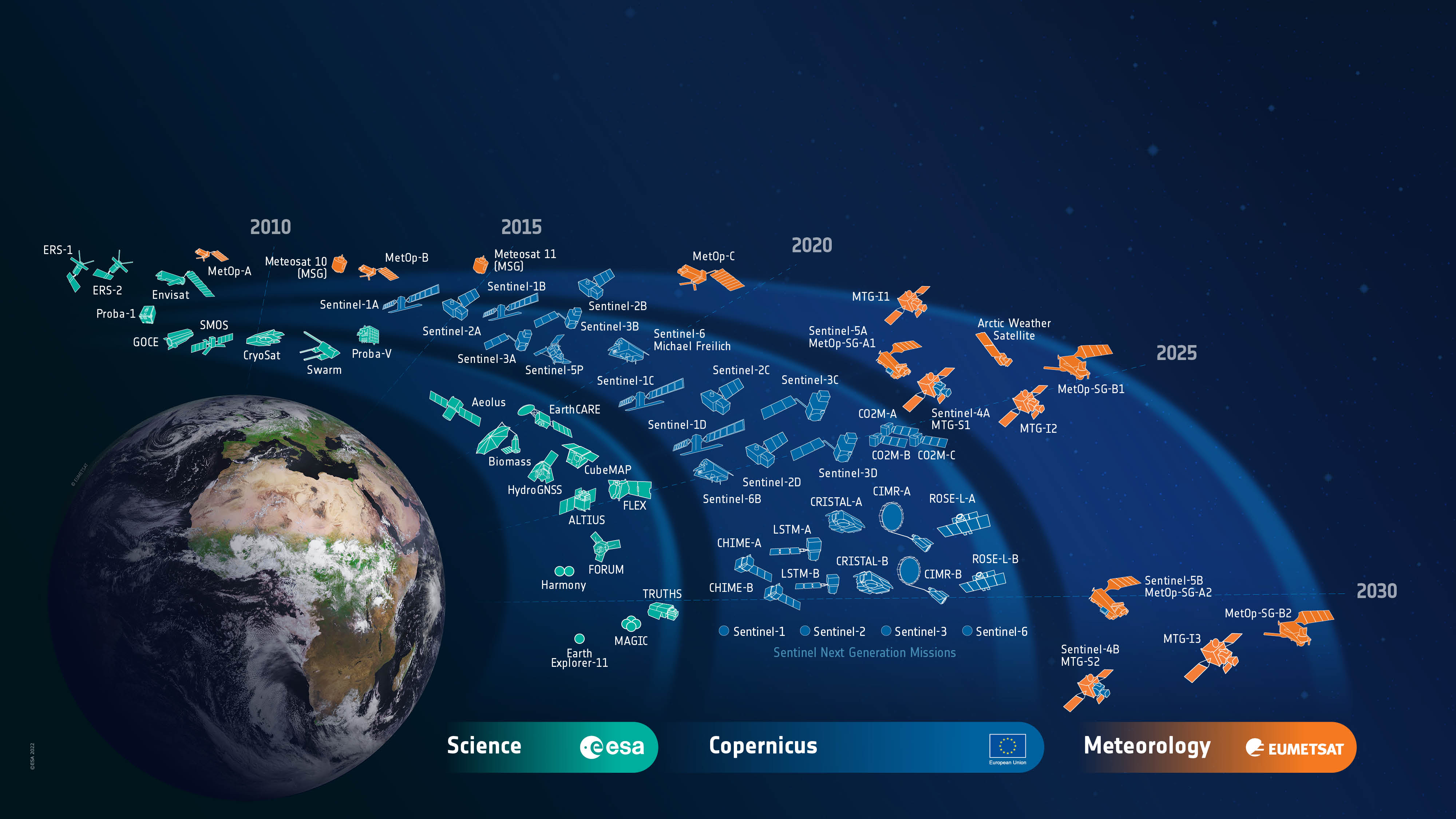Topic 1a - How the ESA-World Bank Partnership Supports Policy, Planning and Impact
The World Bank, headquartered in Washington, DC, is one of the world's largest providers of development assistance. Through loans and grants, it provides financial assistance to projects, primarily in low and middle-income countries. Policy advice, research, analysis, and technical assistance are all part of this.
For more than a decade, the European Space Agency (ESA) has collaborated on a variety of projects and initiatives with the World Bank. This collaboration began in 2008, when ESA conducted small-scale pilot projects demonstrating the potential of Earth Observation for the Bank's operations, leading to the creation of the 'eoworld' joint initiative in 2011.
In 2015, the World Bank and the European Space Agency signed a new partnership agreement to take this collaboration to a more strategic level, and the new initiative that resulted was known as 'Earth Observation for Sustainable Development', or EO4SD. ESA's EO4SD has enabled tangible outcomes and measurable impact from the use of Earth Observation data in many areas of development.
Space for International Development Assistance is a cooperation agreement powered by global development assistance (GDA). It was launched by ESA, the World Bank and Asian Development Bank, and includes two distinct programme components. One, on the ESA side, is called Global Development Assistance (GDA), and it will focus on knowledge development and new technical developments in direct response to requirements gathered within the Banks as well as from clients and developing countries. The second component focuses on associated capacity building and skills transfer to developing countries in order to foster and sustain the local digital economy in the long term. It leverages different development finance and programmatic instruments including the new dedicated World Bank Digital Earth Partnership programme and associated Trust Fund
In this film, Christoph Aubrecht, Global Development Assistance Program Coordinator at ESA and former ESA Representative at the World Bank, provides insights into how the partnership has worked and evolves. Senior figures from across the World Bank give their perspectives on the added value and new capabilities which the partnership has delivered.
Featured Educators:
- Christoph Aubrecht, European Space Agency
- Ede Ijjasz-Vasquez, (Formerly World Bank)
- Bernhard Metz, World Bank
- Sameh Wahba, World Bank
- Anna Wellenstein, World Bank
MOOC topics
In this MOOC, each topic is introduced through a video with supporting text.
We have also provided a range of optional further reading, links, and additional resources to help consolidate your learning. Here is a summary of what is available:
Topic links and resources
In each topic, once you have watched the video and read the accompanying text, you will find the following information:
- Optional Further Reading: These are external links to further reading and other resources.
- Featured Images and Featured Animations: Below the text on Topic video page, you will find the featured images and featured animations that were shown in the Topic video.
- Interactives: On the 'Interactives' tab on relevent topic pages, you will find some interactive data viewers (e.g. ESA's Climate from Space tool), allowing you to explore a selection of data relevant to the themes and topics in this MOOC.
Quizzes
- Quizzes: At the end of each Chapter (and in the middle of Chapter 2) there will be a quiz consisting of around five questions. These will help you consolidate your understanding of new topics, but are not scored. The feedback given with answers will also provide you with important information. These quizzes are informal and therefore there is no formal scoring.
Certificate
- Participation certificates are available for this MOOC, you can request one using the form at the end of the course.
- About the EO for Sustainable Development (EO4SD) Initiative
- Better decisions in Development Assistance with EO
- Using space to foster development assistance for disaster resilience
- ESA Global Development Assistance (GDA) Website
- World Bank Digital Earth Programme (DEP) Website
- World Bank Financing Instrument

©

©

©

©

©

©

©



